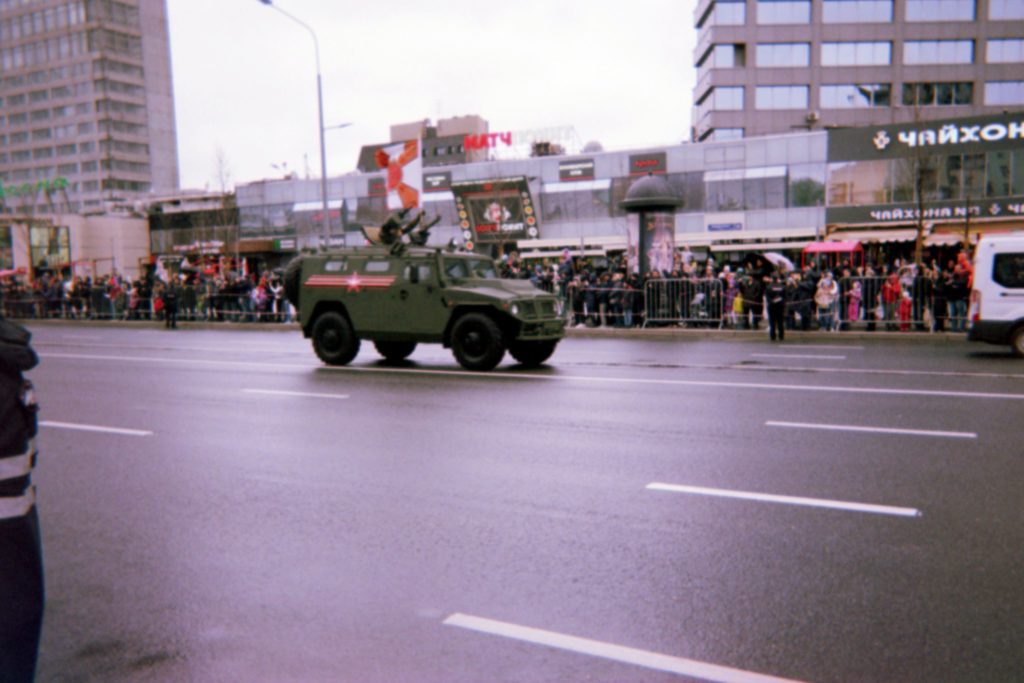
BBC Monitoring, Source: Interfax news agency, Moscow, in Russian 1005 gmt 29 Jun 23
The Russian public remains sure of a successful course of the “special military operation” in Ukraine, according to the results of a poll by Russian Field, influential business daily Kommersant reported on 28 June.
While over half of those questioned (58%) approved the actions of the Russian armed forces, a little more than a fifth of the respondents took the opposite view. At the same time, the share of those who support the termination of the operation and a transition to peace negotiations (44%) is practically equal to the number of those who support the continuation of hostilities (45%).
In the course of Russian Field’s 12th survey on the attitude of Russians to the war, sociologists spoke on the phone to 1,600 respondents from 16-19 June 2023. According to the study, 58% of Russians say the campaign is going well, while 21% think it is not. And 64% of respondents would approve the president’s decision to attack Kyiv – a record for the entire time of the study, the survey’s authors note.
A transition to peace talks, however, would be positively viewed by 72% of respondents, the poll found. Among those respondents who trust official sources of information (46% of those questioned), 84% positively assess the current results of hostilities, and 74% would support an attack on Kyiv.
Split on peace or war
When respondents were asked to choose between continuing hostilities or peace negotiations, their answers were roughly evenly divided: 45% and 44%, respectively. The position on this issue depends on age: among citizens aged 18 to 29, 62% support a transition to diplomacy, while only 36% of those aged 60 and older did so.
In the event that a second wave of mobilisation is required to continue the war, the majority in all age groups (54% of the total number of respondents) will approve the peace negotiations, with only 35% in favour of continuing hostilities in such a situation.
Respondents of all age groups, regardless of their attitude to the continuation of hostilities or negotiations, do not see an early end to the war: the proportion of those who believe that it will go on for more than a year is regularly growing and has reached 49% (in March 2022, this was expected by only 13% of respondents).
Divided over strategy
The question of what specific steps to take at the moment divided the respondents. A transition to offensive operations is favoured by 39%, while another 30% are in favour of consolidating the gains achieved, while 12% are in favour of a complete withdrawal of troops.
Russian Field notes that the number of supporters of maintaining the status quo is highest among the more well-off respondents, but falls again when it “gets close” to the wealthiest group of respondents. It is also noticeable that the proportion of supporters of an offensive strategy is higher among those who trust official data on the course of the war.
On the whole, however, the fighting in Ukraine remains a distant event in the perception of most Russians – 40% of respondents are tired of news related to the war. This figure has been stable since March 2022. Relations with some relatives or friends have been broken off because of a disagreement on the Ukrainian issue by 11% of respondents.
Public opinion regarding the war is now set, political scientist Alexei Makarkin told Kommersanta. “The absolute majority have decided on their views,” he said. “Now there are no events that would prompt people to reconsider these views.”
Hardened attitudes
Although Russians have access to various sources of information, they use them mainly to affirm their opinions, Makarkin said. “Information in most cases does not change their approach: if it contradicts their worldview, they almost immediately cut it off.”
According to him, in almost a year and a half since the start of the war, it has managed to “become routine”, and the events related to it do not occupy the Russians in the same way as they did in February 2022 and at the start of “partial mobilisation”. It is unlikely that the failed rebellion of the Wagner PMC will seriously affect their position, he said: “Everything was rapid, everything was very rapid, people did not have time to get scared.”
Kremlin says most Russians support war
On 29 June, President Vladimir Putin’s spokesman was asked to comment on “data from an opinion poll according to which the number of Russians who support the special operation is equal to those who are in favour of the negotiation process”, the Russian news agency Interfax reported.
Dmitry Peskov replied: “The data that we have is different, it still shows the absolute predominant support for the special operation, the absolute dominant support for the president”.
“Everything is clear there, the methodologies are clear – these are, in fact, provided by the pillars of our sociology,” he said.
He declined to comment on the opinion poll mentioned by the journalists, saying that he was not aware of its methodology, Interfax said.